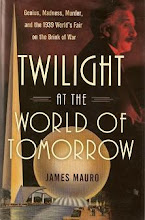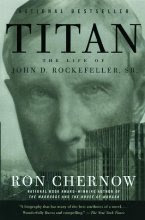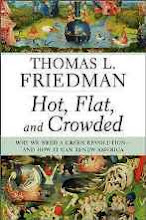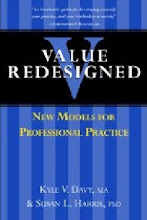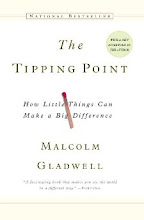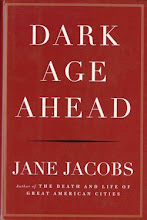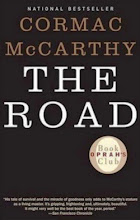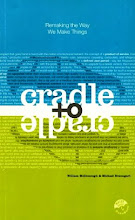 “Relationships of trust depend on our willingness to look not only to our own interests, but also the interests of others.”
“Relationships of trust depend on our willingness to look not only to our own interests, but also the interests of others.”
Peter Farquharson
Observations of human behavior indicate that a fundamental universal law appears to regulate societal aspirations when it comes to most elemental values. It is difficult to discern if society is capable of reaching past these self imposed limitations in order to achieve a greater good. In simple terms, individuals for the most part will follow the path of least resistance and choose the lowest common denominator when making decisions. The term Lowest Common Denominator is used figuratively to refer to the "
lowest"—least useful, least advanced, or similar member of a class which is common to things that relate to members of that class. The source of this human tendency is likely a combination of both genetics and environment, or what is referred to as “
nature or nurture”. Donald Hebb is said to have once answered a journalist's question of "
which, nature or nurture, contributes more to personality?" by asking in response, "
which contributes more to the area of a rectangle, its length or its width?" Unfortunately the public’s predilection to the lowest common denominator regardless of the catalyst is an ominous indicator of the future decline of our society. After considerable thought, I have determined that much of my personal negativity concerning humanity and its inability to act collectively to solve serious social issues, has its origins in this basic human tendency.
As of recently, I have been fascinated with the concept of “
The Tragedy of the Commons” which is an influential article written by Garrett Hardin and first published in the journal Science in 1968. “
The article describes a dilemma in which multiple individuals acting independently in their own self-interest can ultimately destroy a shared limited resource even when it is clear that it is not in anyone's long term interest for this to happen. Central to Hardin's article is a metaphor of herders sharing a common parcel of land (the commons), on which they are all entitled to let their cows graze. In Hardin's view, it is in each herder's interest to put as many cows as possible onto the land, even if the commons are damaged as a result. The herder receives all of the benefits from the additional cows, while the damage to the commons is shared by the entire group. If all herders make this individually rational decision, however, the commons are destroyed and all herders suffer.
The metaphor illustrates the argument that free access and unrestricted demand for a finite resource ultimately dooms the resource through over-exploitation. This occurs because the benefits of exploitation accrue to individuals or groups, each of whom is motivated to maximize use of the resource to the point in which they become reliant on it, while the costs of the exploitation are borne by all those to whom the resource is available (which may be a wider class of individuals than those who are exploiting it). This, in turn, causes demand for the resource to increase, which causes the problem to snowball to the point that the resource is exhausted. The rate at which exhaustion of the resource is realized depends primarily on three factors: the number of users wanting to consume the commons, the consumptiveness of their uses, and the relative robustness of the commons.”
Inherent is this discussion is the individual’s inability of see a collective outcome which achieves a higher social benefit over the marginal self interests of the easy decision. The characteristic behaviors of self interest, narcissism, cynicism and vanity are thus spread throughout contemporary society as a method to promote consumerism. Such attitudes are perhaps not the most pleasant or productive phenomena but they may still open up interesting avenues for discussion, particularly with regards to the issue of self-interest and pursuit of happiness in individual relationships. Are these attitudes deviant reactions or safety valves that stop individuals from collectively confronting the real issues that affect their lives? Are they part of a generalized malaise that has infected western culture? Either way we have achieved a society with the greatest personal wealth in the history of mankind and yet happiness seems so elusive to majority of us.
We can explore the concept of self interest in more detail in order to understands it’s destructive impact on individual achievement or the lack there of. There is little need to investigate at any length the doctrine of individual happiness and self-interest as advanced by Hobbes, Locke, Hume, Hutcheson, and Bentham. They believed in general that the criteria of human action were pleasure and pain; that human wants were insatiable; that for the most part everyone sought his own happiness above everything else; that work was not pleasurable; and that no one would work except as a necessity. They questioned the ability of material wealth to bring happiness.
The pursuit of self-interest has been the basis of economic theory since Adam Smith in his “
An Inquiry into the Nature and Causes of the Wealth of Nations” (1776) emphasized the force of vanity in motivating human action. However he believed that self interest made men strive for more than they need simply to secure the approval of their fellows. It assumes nature uses these characteristics of man to inspire him to labor. In the end man produces useful things for the benefit of others. Smith was consistent in sponsoring the principle that nature can and will direct the selfish actions of men toward the social good. An all-pervading force somehow correlates all the individual pursuits of self-interest into patterns that are socially beneficial.
I disagree with the basic premise that self interest results in beneficial social patterns. The principal of the “
Guiding Hand” in economic theory suggests that open markets will self regulate providing a social boundary. This naïve concept of invisible market forces has been discredited in our most recent economic meltdown where self interest in the form of greed, narcissism, cynicism and vanity has exhibited no self regulation. In fact governmental deregulation fuelled the excess as limits to amount of financial leverage were relaxed. The whole idea that self-interest is a powerful motivating factor in individuals exerting additional effort is overly generous as a human condition. To the contrary individual self interest is likely to take the path of minimal investment or the lowest common denominator, unless you subscribe to Sigmund Freud theory that all self interest is motivated by sex. I’m inclined to believe that more than the economic premise.
Society is confined more by personal experiences establishing the foundation for self interest than anything else. In the discussion of “
nature verse nurture” where we debate if genetics or life experiences have at greater influence on personal behaviors, I think it is clear that experience is the winner. Look at how often personal experiences reflect our current relationships. There is a strong tendency to settle for the easy answer rather than seeking a higher ideal. I was amazed in a recent survey where couples who were married over twenty years were asked if they could do it all over again would they marry their same spouse. Over 45% of the women indicated they would have not married the same person. Almost half of the respondents were sufficiently dissatisfied with their personal relationships that given another chance they opted to trade their husband in. What does that tell us about self interest as a motivating factor in higher achievement or personal gain? Seventy five percent of men interestingly enough would remarry their spouse; however I not would attribute this to increased satisfaction or self interested achievement but rather excessive compliancy and overt laziness. Men are generally much less apt to analysis interpersonal relationships as long as their basis needs of food, shelter, sports and sex are met, again a condition of laziness. Think about this statement on individual expectations when it comes our self-interest and personal relationships. We are willing to settle for less than to work for more. As a general rule we are willing to accept our parent’s societal position rather than achieving a higher status, unless it is given to us with little effort or discomfort. This tendency can best be seen in middle aged women where the fear of being alone will drive them to poorly conceived and mediocre decisions which would never have been acceptable earlier in life, highly reluctant of risking a better future against the laws of probability.
This not to say that women are the only ones that settle, I think we all do by and large, including myself. How often have we overlooked critical flaws in our relationships in order not to rock the boat, compliancy is easy. We all can list the characteristics we will ignore. The excessive signs of alcoholism, the propensity for gambling, the emotion abuse, the lack of financial responsibility, the underachievement in the workplace, the limited investment of emotions are all indications that society will pursue self-interests only to the degree that is requires little from us. We make these decisions by choosing the lesser of two evils instead of challenging ourselves that there is a better option not yet explored.
How many employees opt to play solitaire while on the clock instead of investing spare time into personal achievement? We choose not to improve our abilities but rather justify our actions because we are under compensated and under appreciated. Yet, the concept of self-interest continues to permeate most organizations. For example, the organized appeal to the ‘selfish gene’, advancing their self-interest and wanting to ‘
be themselves’ at work.
As am employer I am fully cognizant of the enormous amount of time wasted by individuals while surfing the internet, paying personal bills and mindless chatter with boyfriends, spouses and relatives. It is difficult to appreciate that if all that wasted energy was harnessed into productive work or creative innovation, what that would mean to the profitability of the organization. Eventually that success would raise individual standards as the company became more capable of rewarding their employees. Given the most difficult economy in 80 years and a frantic call to arms for increase efficiency and vigilance, I have seen little change in behavior. The pervasive opinion of doing just enough to get by continues to dominate the workforce culture. I’m sure that my employees would just retort that I’m in fact pursuing my own self-interest in making them more productive so that I have to work less. If that was truly the case I’m capable of making three times the income and significantly less stress as an independent consultant instead of chief executive.
As illustrated above, there is little societal benefit in individuals acting in their own self-interest and possibility even less in terms of personal achievement in relationships. Is there any way to challenge the self-interest which pervades contemporary organizations and individual relationships? Are we destine to a radical return to ‘
objectivism’ and the luxurious wallowing in self-interest? Even I have fallen into the deep self interest of cynicism to which I find is intensifying daily. I have no answers or solutions to correct my own failed self interests and am even less able to consider anyone else. I guess I should heed the advice of an old friend whose motto was “
f…k it”.
“If you limit your choices only to what seems possible or reasonable, you disconnect yourself from what you truly want, and all that is left is a compromise.”
Robert Fritz















